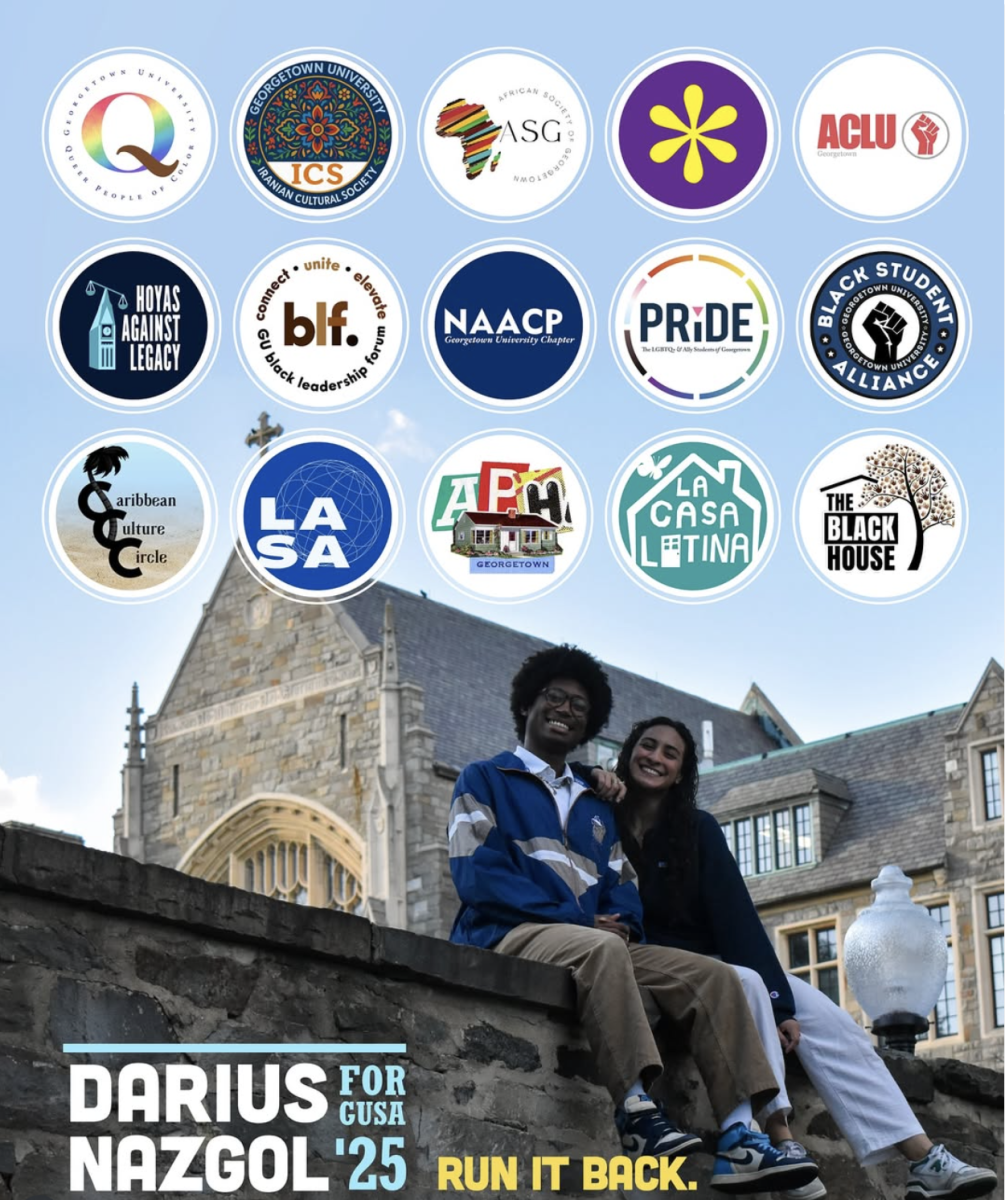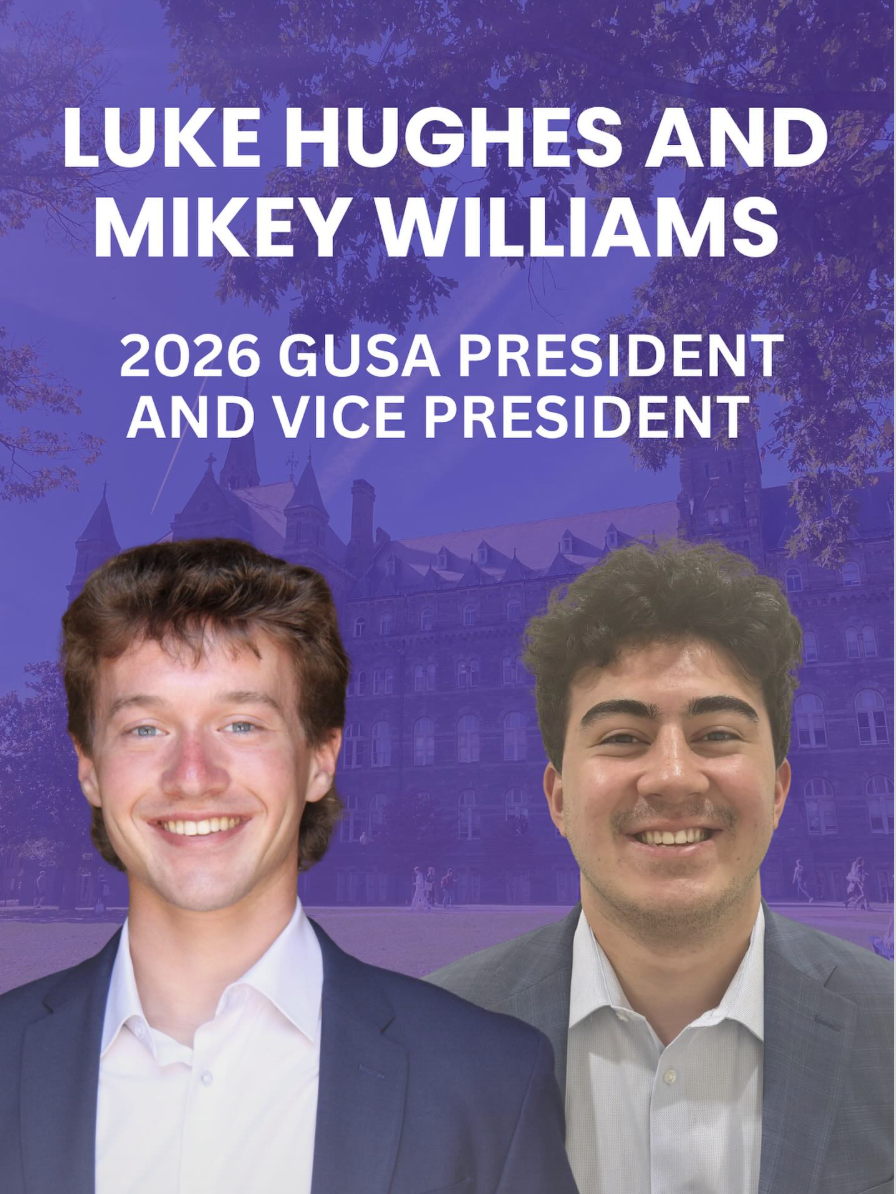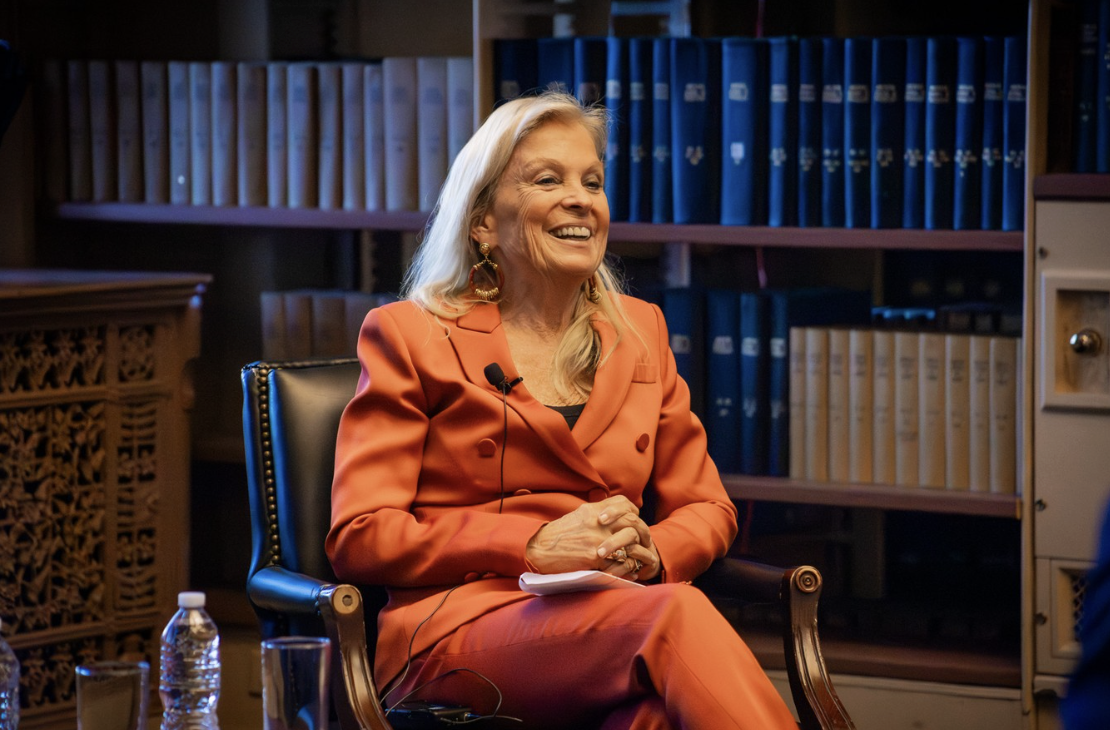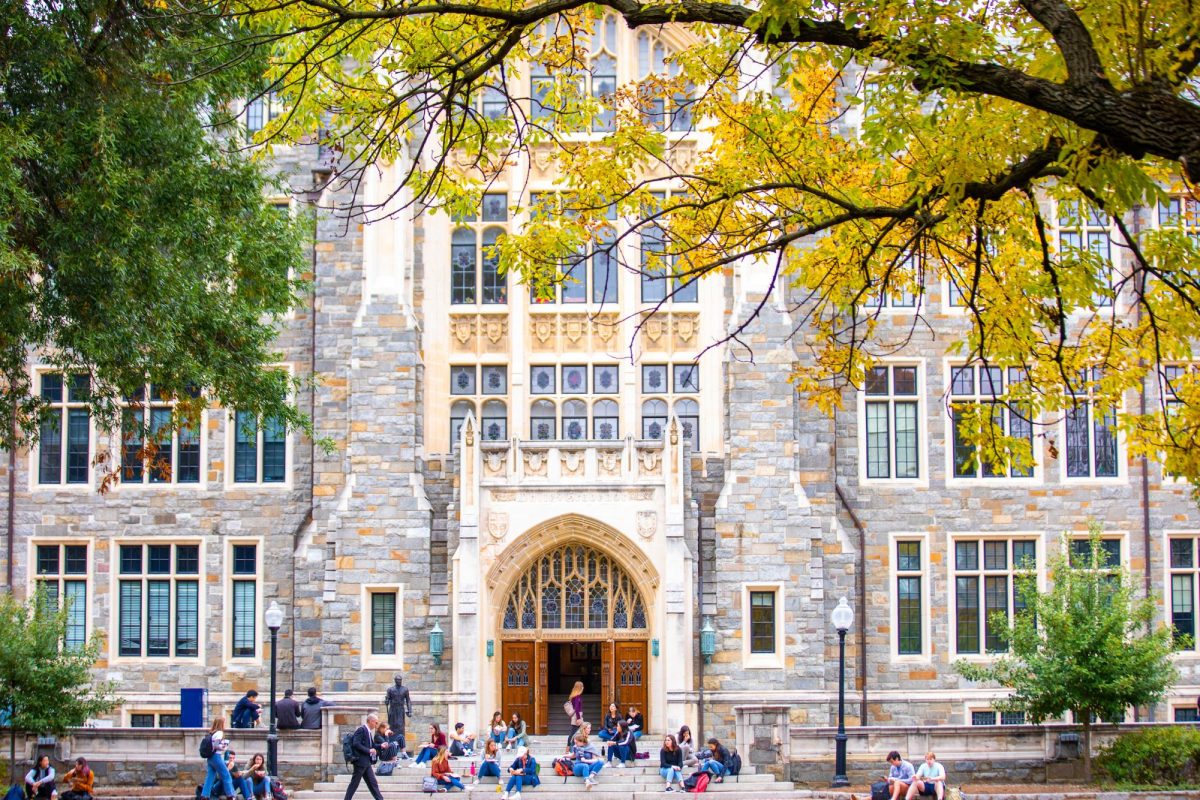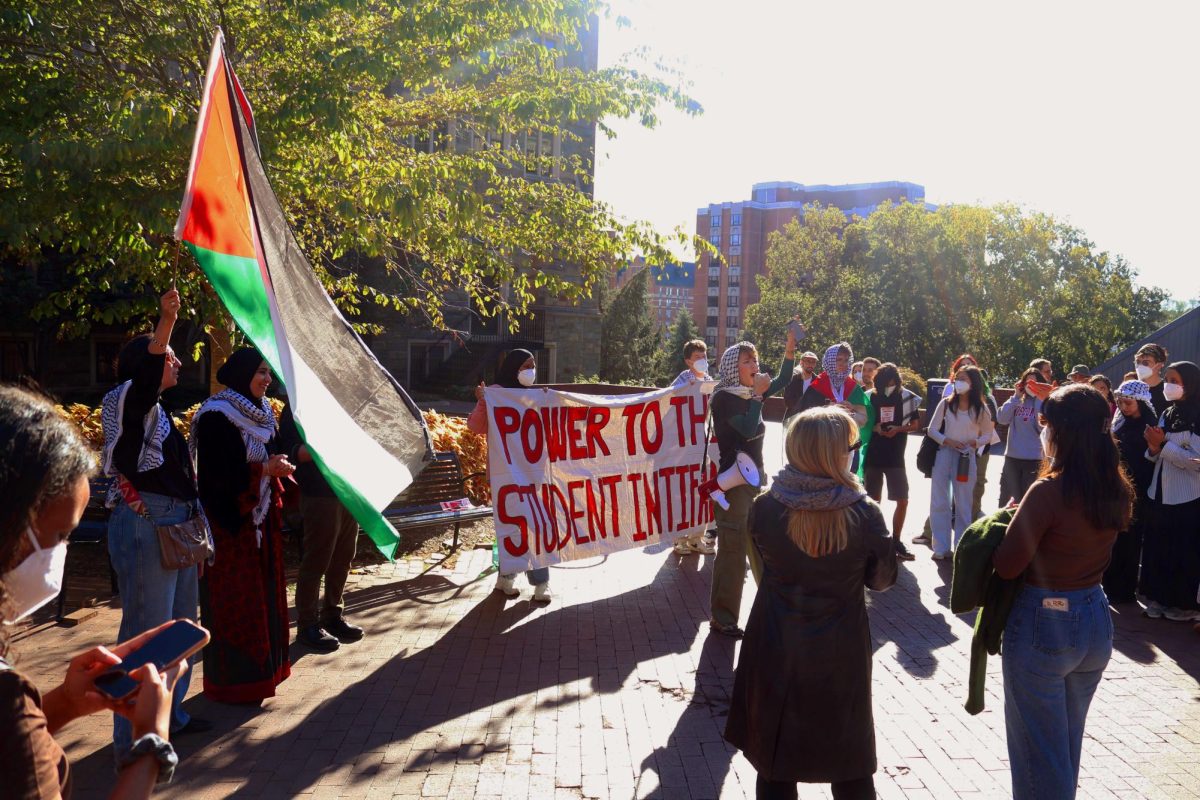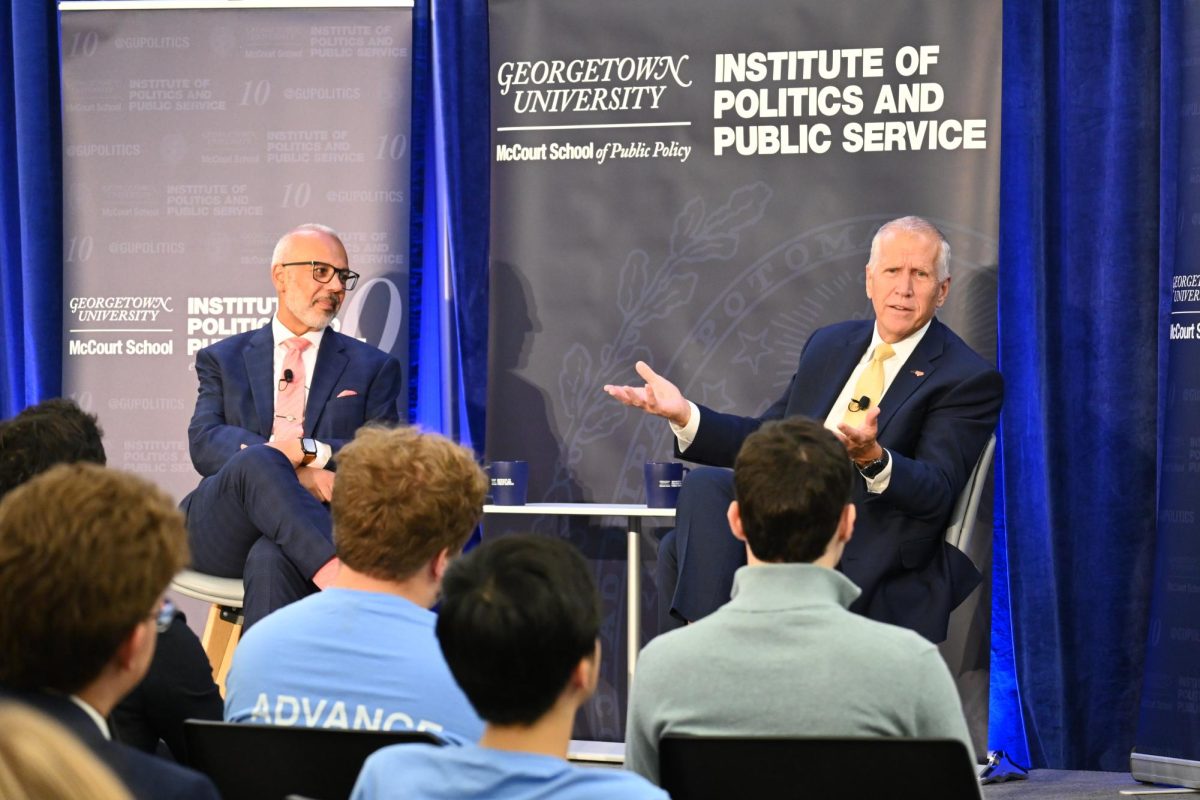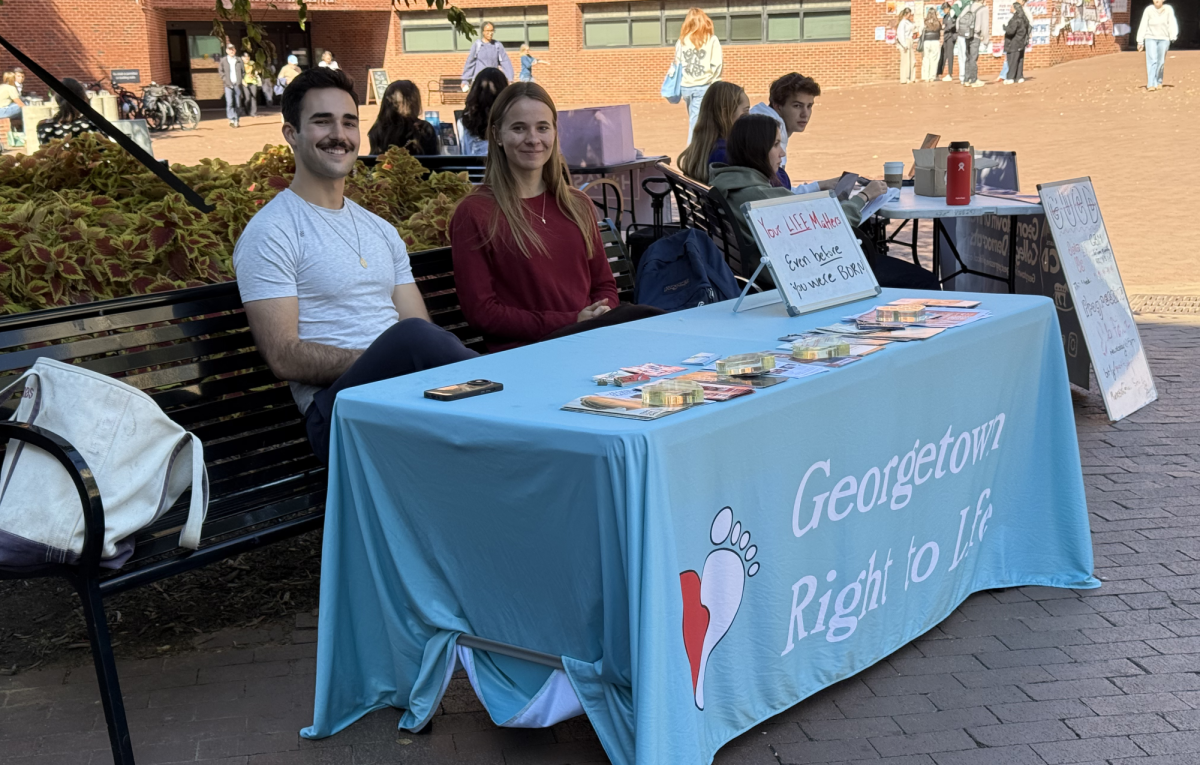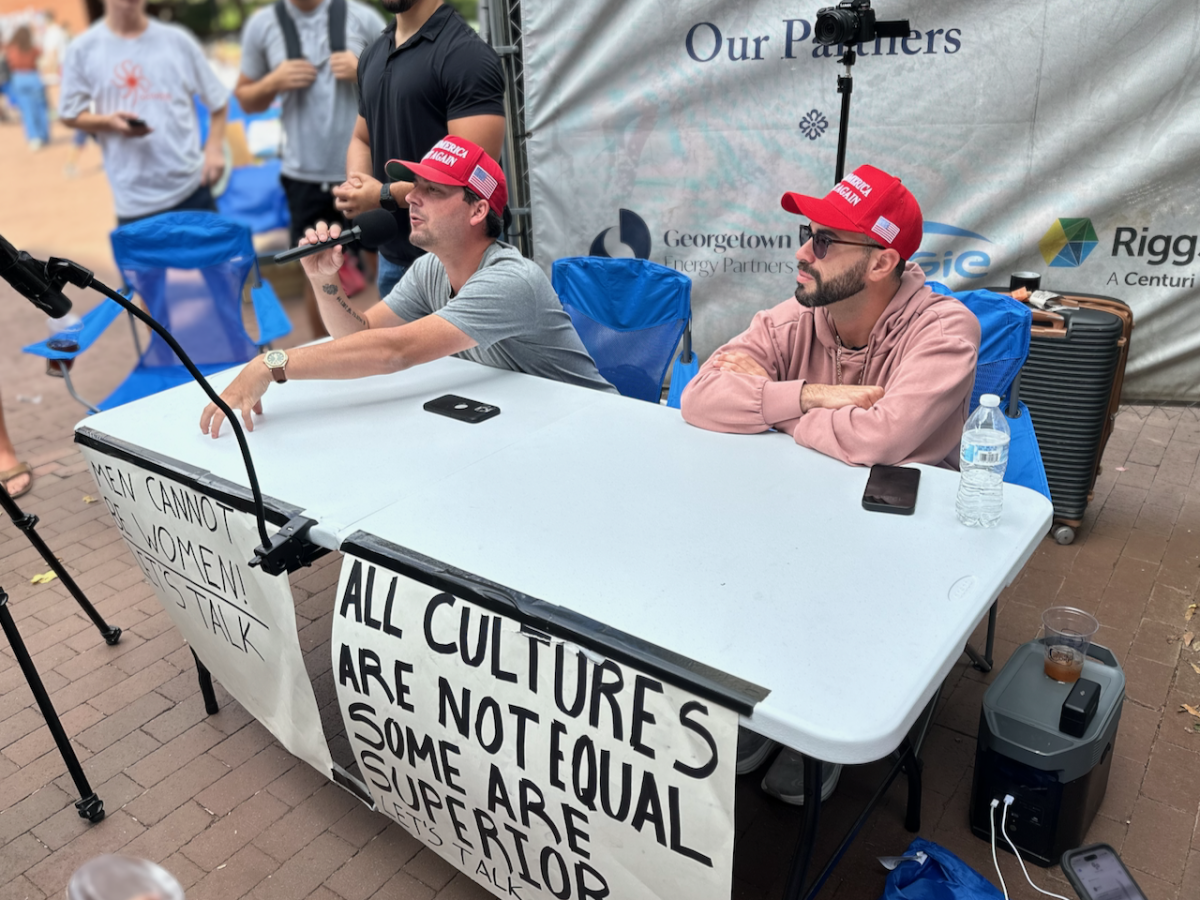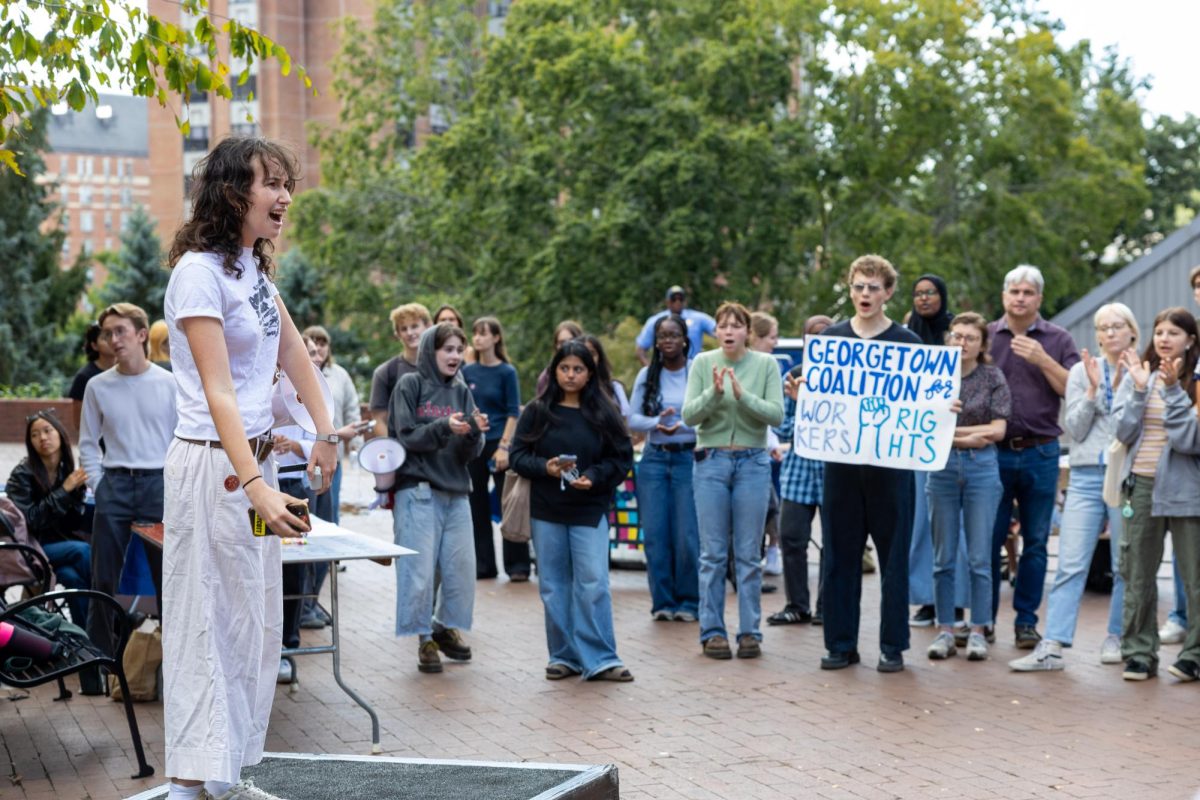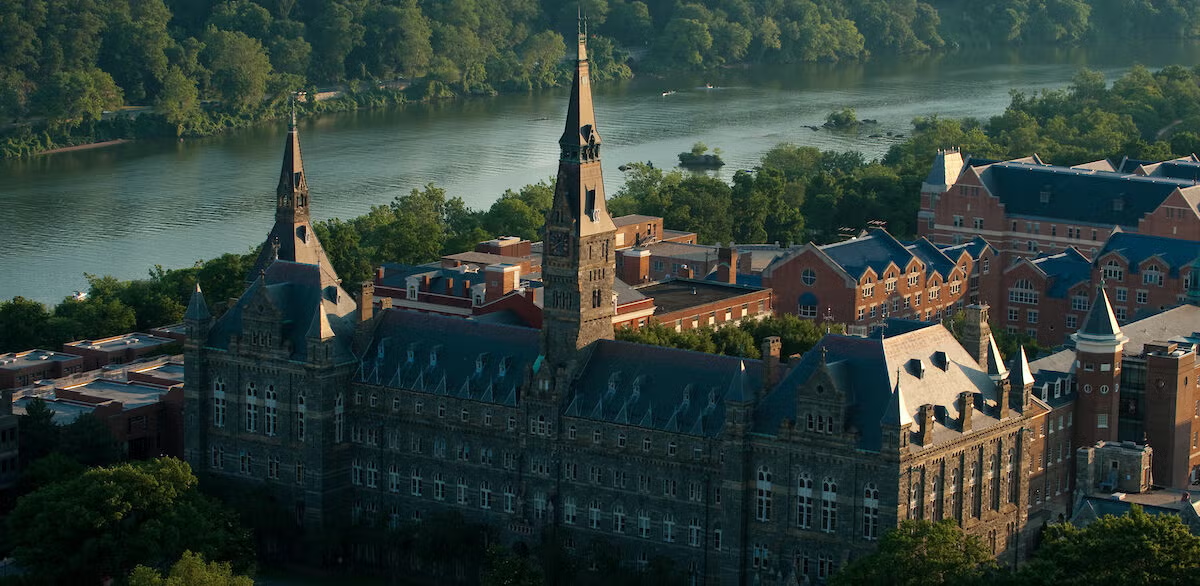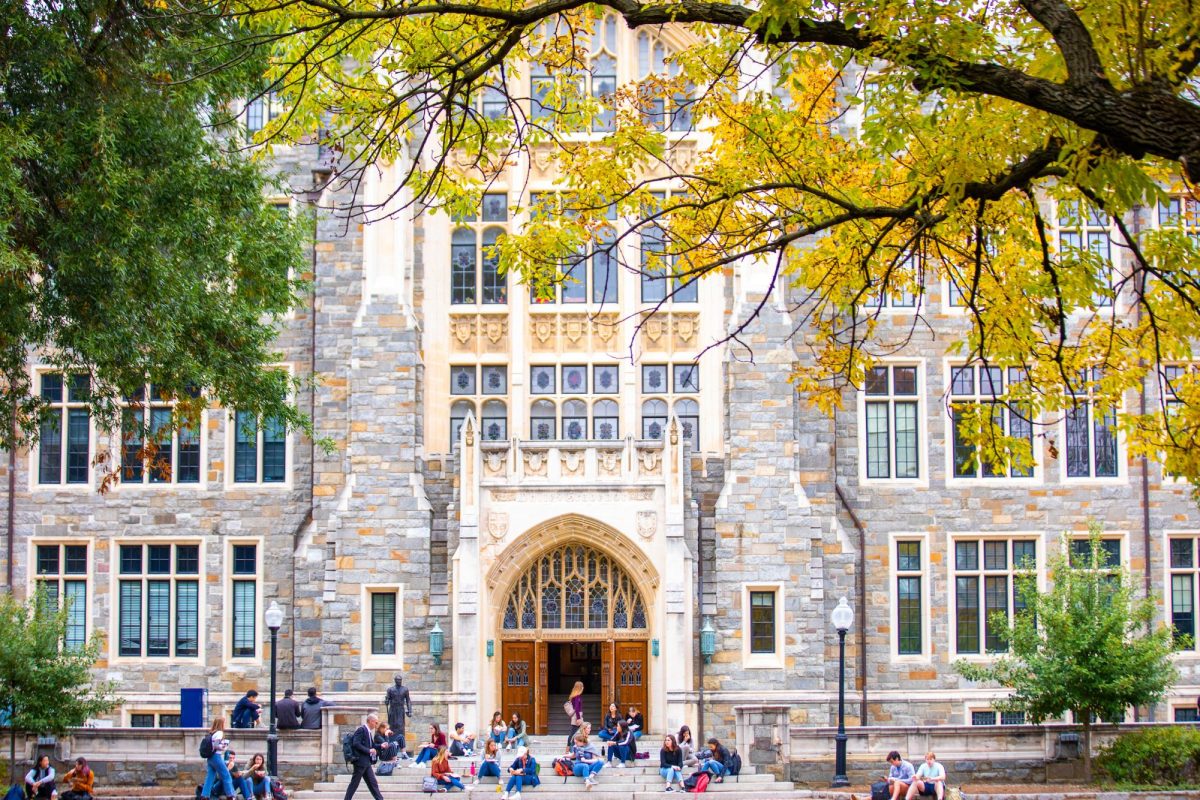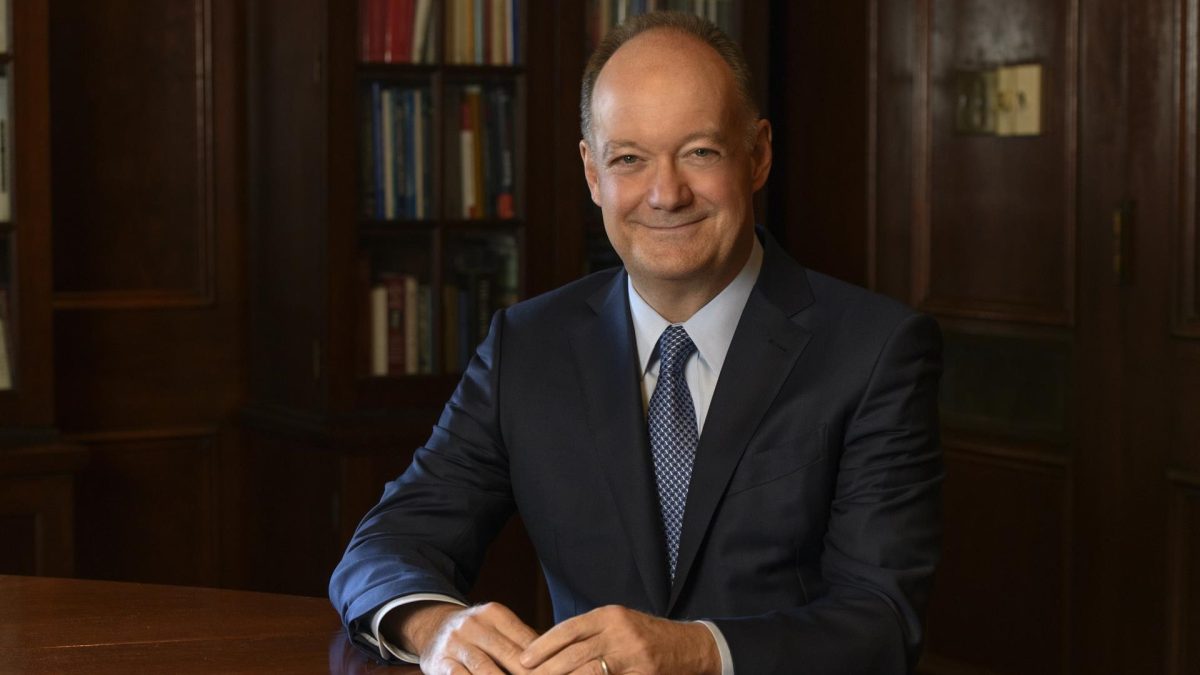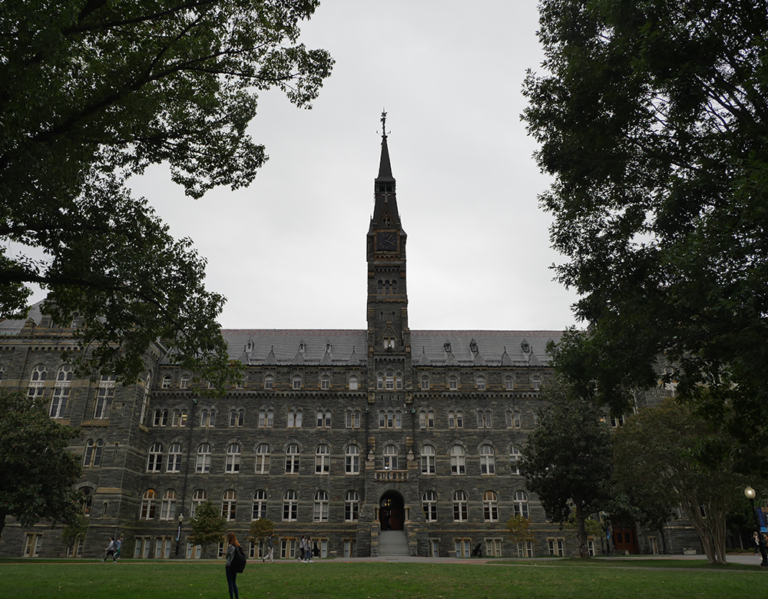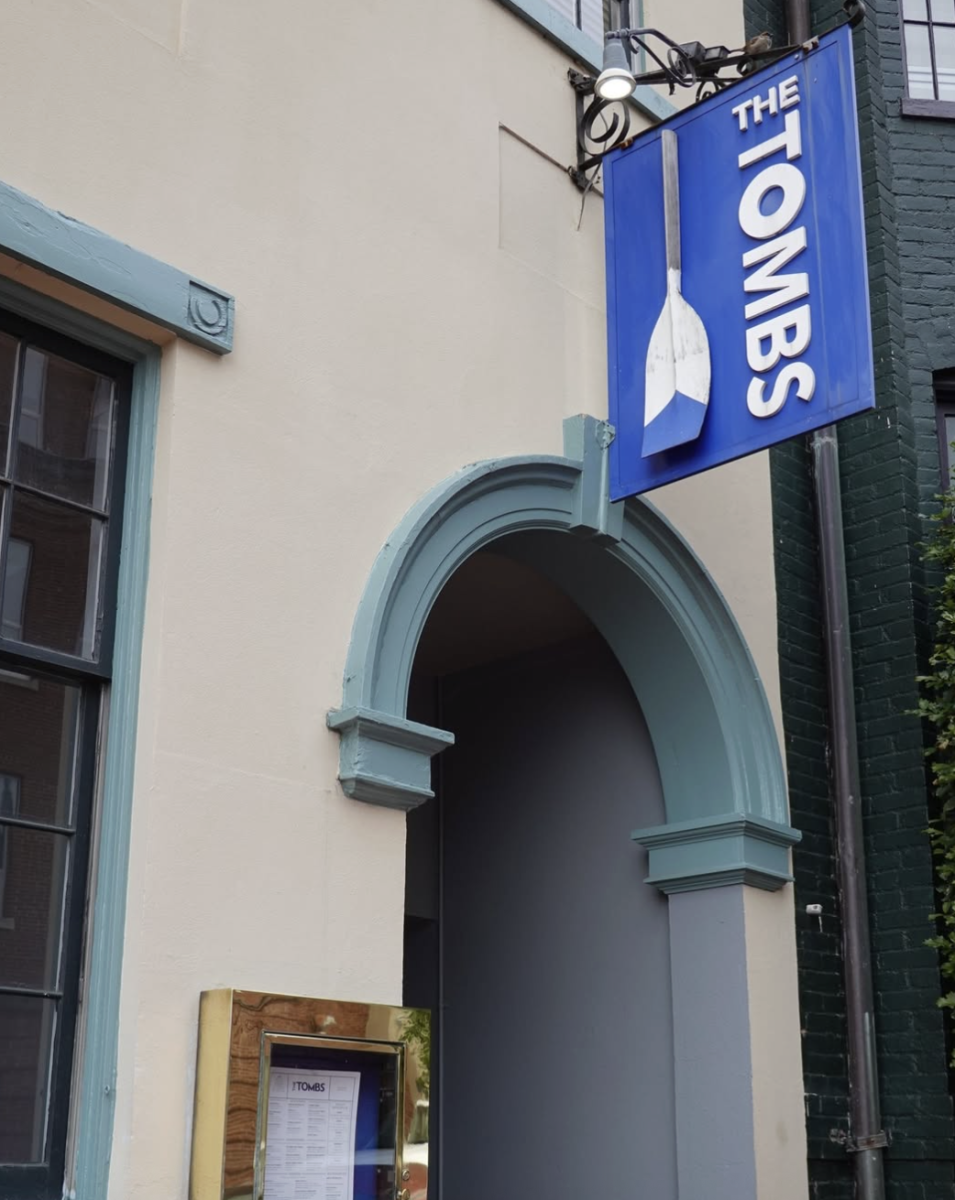Saahil Rao (SFS ’27) and Zadie Weaver (CAS ’28), running for Georgetown University Student Association (GUSA) president and vice president, aim to reform club funding and work closely with the university administration if elected.
The Hoya sat down with the candidates to discuss their policy platform. Rao and Weaver highlighted their plan to increase student club funding, improve student engagement in Village A renovation plans and create new academic programs. Rao also revealed his membership in the Second Stewards Society — an all-male anonymous society central to controversy in the 2013 and 2014 GUSA elections — but insisted it would not influence his tenure or candidacy. Voting opens Oct. 22 and closes Oct. 24.
Below is a partial transcript of their interview.
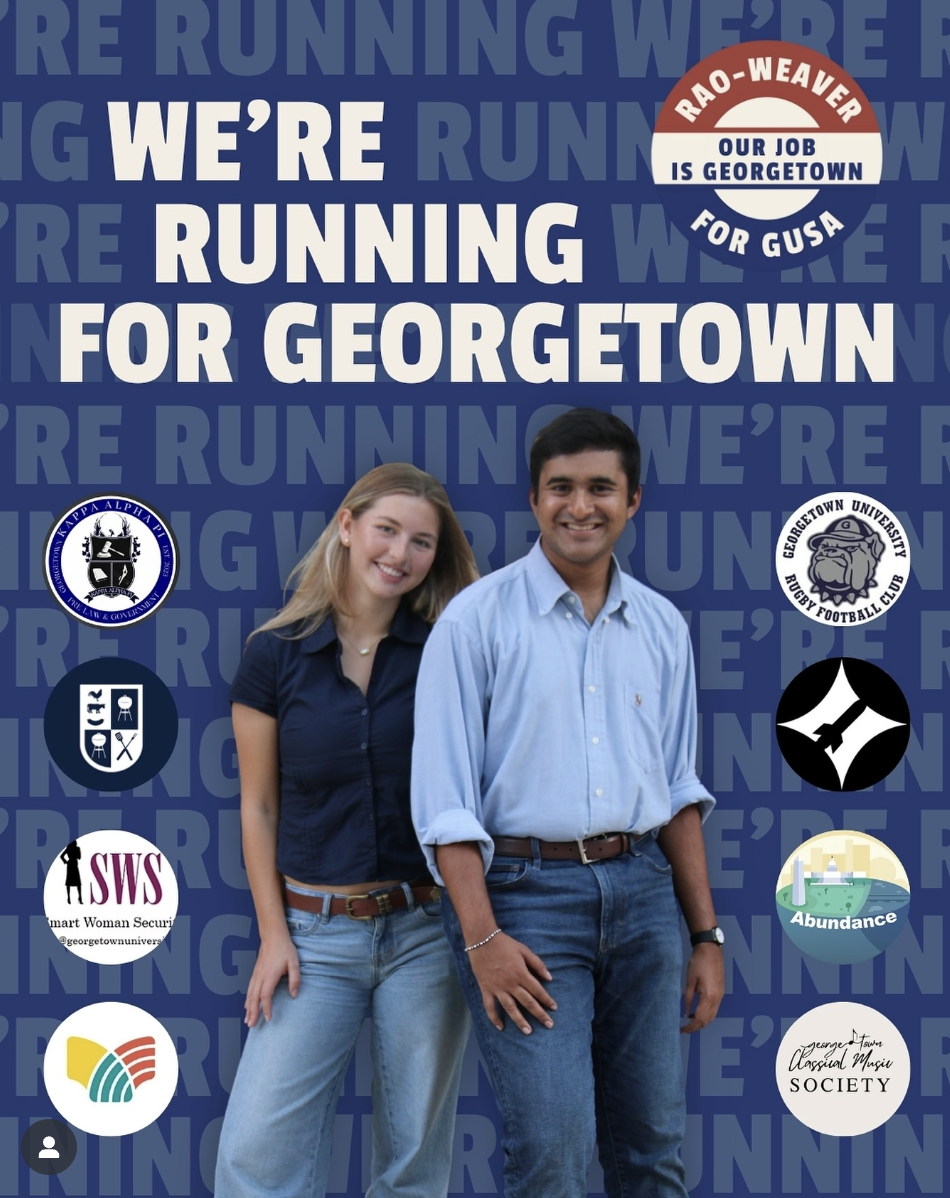
Tell us a bit about yourselves and your role in the Georgetown community.
Rao: I do GUSA — sad. I am a student advocate for the Student Advocacy Office, so I help people out if they’ve been written up on code of conduct charges and Honor Council cases. I’m also in the Georgetown Journal of International Affairs.
Weaver: I’ve been a senator since this time last fall, and last spring, I was elected vice speaker of the senate. Outside of that, I’m in College Dems and I table for H*yas for Choice.
Why are you running for GUSA? What experiences do you have that qualify you for this position?
Rao: GUSA needs a president and a vice president that spends all of their time, all of their energy, all of their problem-solving capacity, on thinking about the day-to-day issues that actually affect students the most. We’re obviously the current speaker and vice speaker of the senate, so we’re ready to hit the ground running on day one.
Weaver: All these senators have great ideas for solutions. We find that the failure is actually in implementing them — whether the administration wants to listen to our complaints, whether the plans actually get followed through. So that’s why we’re switching to the executive.
If elected, what are your top priorities?
Rao: After we talked to stakeholders over an entire summer, we had a proposal to have donors fund GPB’s spring concert and Funniest Human and actually get increased funding of those by moving them all onto donors. And what that would do — that’s about $150,000 from the Student Activities Fee — is it would free up that money for other clubs.
Weaver: Our idea is to keep these open access educational programs, but also let freshmen apply at the beginning of their fall. So you can apply, because that’s what all the MSB club leaders want. But then also, if you don’t want to go through the five rounds of interviews, or just want to learn about investment banking without committing 10 hours a week to it, then you can go to the educational programs. That’s the way to decrease the toxicity while still allowing clubs to recruit the kids they want.
How will you address GUSA’s low approval and skepticism from the student body? How will you keep voters engaged with GUSA throughout the year if you win the election?
Rao: We should just be able to say at the end of our year, as the executive, that we have made meaningful improvements to your life — that RAs are allowed to issue unofficial warnings again, that Vil A will for sure have more rooftops, that your club is going to have more funding. It’s the actual work that matters, not people’s perception of our work.
Recently on social media, there has been speculation around secret societies playing a role in GUSA elections. Are you currently or have you ever been in any anonymous societies?
Weaver: No.
Rao: I am part of the Second Stewards Society. It’s not much of a secret for me, it’s more of a fraternity. As for the question of influencing GUSA, our platform is exactly what we say it is. There’s not some secret power levers we can control — we’re going to do everything we want to do very transparently.
How can students trust that your Stewards involvement will not affect your GUSA leadership, given their history of being considered “anti-modernist” or advocating against female students?
Rao: It’s a completely apolitical organization, one that I’m proud to be a part of. I saw it as a great way to give back to Georgetown. As for the ‘anti-modernist conservative conspiracy,’ I am a very proud Democrat who tables for H*yas for Choice — if there was some anti-modernist conservative conspiracy, I don’t think it would involve me whatsoever.
Weaver: There’s no policy in there, or any policy that would ever be implemented, that would have any sort of influence by the weird frat that my running mate is in.
How do you believe you will be able to accomplish the goals you set and follow through on your campaign promises during your term? What about the parts of your platform that traditionally don’t fall under GUSA’s purview, like hiring additional staffers in the financial aid office and allowing “the Financial Aid Office to hire undergraduate interns?”
Rao: It’s a super tight fiscal environment right now; hiring staff is very difficult. So if you can get student interns who are on work-study, which means the financial burden is a lot less, to actually start engaging substantively with these issues, you actually have a really nice go-around. Like anything that GUSA does, what it can do is present an argument, present it really well and present it persistently.
You’ve made the “Save Vil A” promise a central part of your campaign. Given that the current GUSA executive has already met with facilities teams about the new Vil A proposals, what would you do differently?
Rao: We got a verbal acceptance — still got to do the follow ups — that there could be two student members appointed to both the Feasibility Committee and the Design Committee. So hopefully we’re able to appoint these members, giving us kind of a real-time check on conversations around Vil A. But if things start to go south in those meetings, we have an advocacy plan all lined up.
Your platform also includes creating different minors, specifically the South Asian Regional and Comparative Studies (RCST) concentration and Space Studies minor. Do you have any examples of previous GUSA administrations having been able to impact the creation of new academic programs?
Rao: I don’t really think that past GUSA administrations have to have helped towards minors or majors for this one to make a difference. GUSA has an academic affairs department, and GUSA is the student government, which purports to represent the entire student body. So just adding energy, adding our voice and even leading and planning some of these advocacy efforts are ways we can, I think, make a huge difference on that.
Do you support ending legacy admissions to Georgetown?
Rao: For. I think it’s a separate issue from the op-ed we wrote, “Defending DeGioia’s Decision,” around the president’s list. But we’re against legacy admissions.
Do you support university divestment from companies with ties to the Israeli military?
Rao: I am for the language that the Committee on Investments and Social Responsibility adopted at its Spring 2025 meeting, which was to divest from companies with direct human rights violations. So essentially, yes.
Do you support increasing the university investment in the Capitol Campus over the next few years?
Rao: Against. We have to make sure that as we go forward, no one is getting forced to the Capitol Campus.
Weaver: I’m also against that. We’ve spent a lot of money on them.
Do you support requiring GUPD presence at smaller club-sponsored events?
Rao and Weaver: Completely against.


